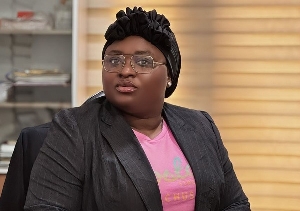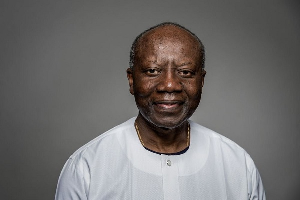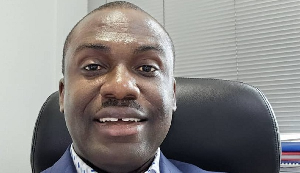Over the past few months, I have taken up some speaking engagements at the Ghana Institute of Journalism (GIJ) about a career in Communications.
Outside the office hours, I am also mentoring two young ladies that have just started their careers in Internal Communication and Public Affairs.
We meet once a month to talk through some of their projects and what the next steps should be. I have also volunteered as a communications consultant for some start-ups.
A career in Corporate Communications is very rewarding and fulfilling - no two campaigns or projects are the same and you often get to think and execute outside the proverbial box. The objectives, strategy and tactics are always different and depending on the target audience, product/service, budget … you can switch it up or down.
It is also exciting because it offers various specialized roles including Internal/Employee Communication and Engagements, Public Relations – this could include government relations, policy formulation and analysis or both, Corporate Social Responsibility/Social Investment and more recently Social Media/Digital engagements.
Often, I find myself and members of the team in different roles other than our job titles and this varies from project to project.
Together as a team/department our single most important focus is to build a great reputation that drives a positive business climate for the organisation.
The bottom line for every business is to deliver value for shareholders. How do we deliver such value if there is no deliberate plan to building a great reputation for the business among various stakeholders?
This is summed up by the famous American Business leader, John Rockefeller, that “next to doing the right thing the most important thing is to let people know that you are doing the right thing.”
Employees need to know that you are doing the right thing, customers need to know and so do other stakeholders including the communities where we operate, regulators, government, shareholders, potential employees, etc.
And there are various ways of keeping these people informed, right from newsletters to press conferences, op-ed, roadshows, town-halls through to social media channels. Increasingly we need to think through our plans and develop compelling content.
It is not an easy job though especially for people who like to sit still. With the range of content, contacts and relations that we need to build including media, events and speaking engagements for senior executives, it is impossible to sit still unless you have an agency on a monthly retainer. Even then my suggestion is that you still go ahead to engage so that you can effectively add-on and support the agency.
Again, you will struggle if you are not open to learning new ways of communicating and measuring success. I will be honest here, what I used to practice in 2010 is far different from now, so much has changed including some of the tools and channels that I used to work with. It is constantly evolving. Like it or not, digital and social media has completely changed our relationship with the public and how we communicate with them and vice versa.
The emphasis is 'engagement' rather than the ‘filter down theory’.
Like every job though, you need to work hard and consistently put in your very best to be successful. You would certainly love your role if you are passionate, very creative and resourceful, dedicated and committed and most importantly have integrity.
I transitioned from broadcast journalism to this field and it’s been very exciting. I have learnt a lot by reading, learning on the job - from line managers and colleagues. I often ask a lot of questions and I am not afraid to ask for help. I also have a small group of friends who share ideas, discuss various strategies and tactics and I would certainly recommend joining bigger networks such as the Chartered Institute of Public Relations, UK and the Ghana Institute of Public Relations – the continuous professional development programmes have been amazing.
More and more business leaders in Ghana appreciate the value that we add to the business strategy and I certainly think it’s a great time to be a part of this profession.
Opinions of Thursday, 4 May 2017
Columnist: Gifty Bingley



















